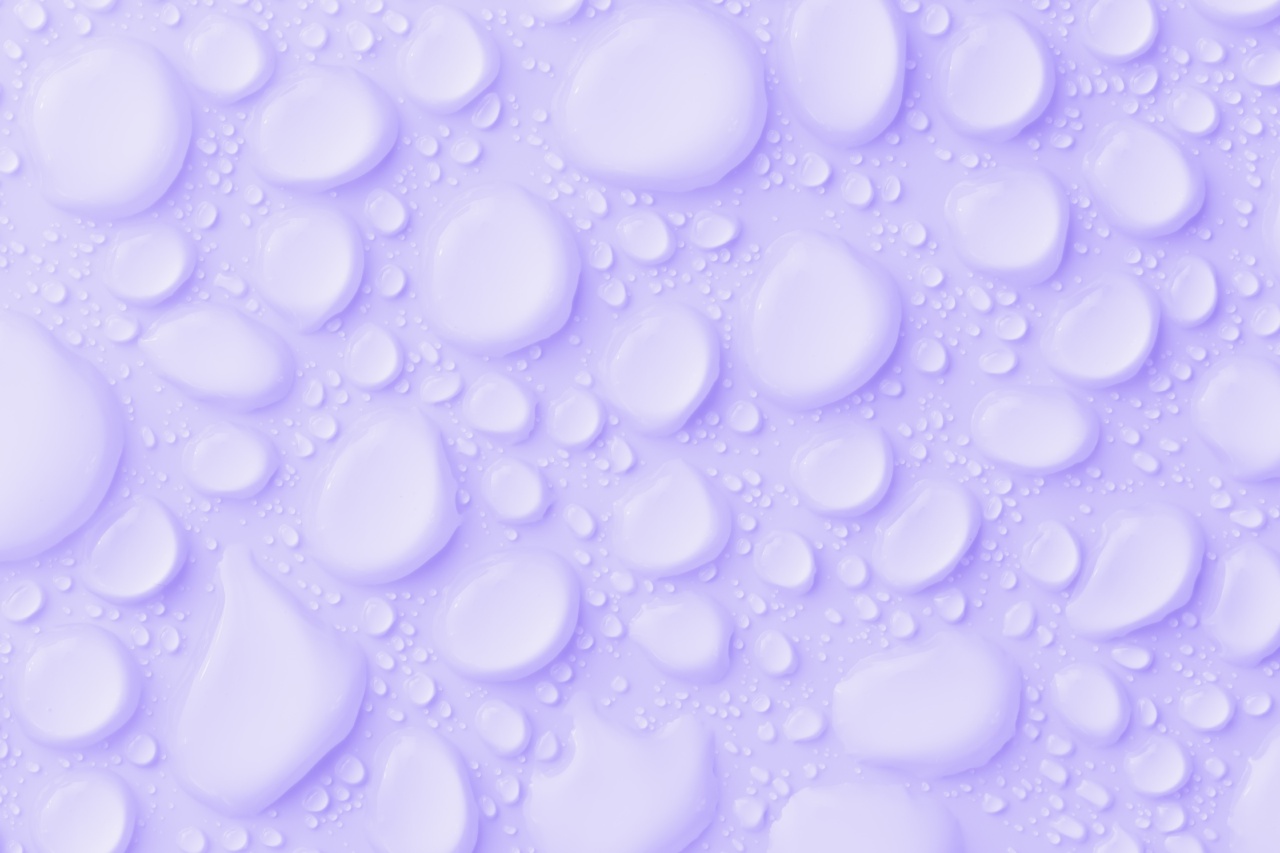Urinary incontinence, or urine leakage, affects millions of people around the world. It is a condition that can cause embarrassment, discomfort, and frustration.
In order to effectively treat urine leakage, it is important to identify the underlying cause. Here are some common causes of urine leakage:.
1. Weak Pelvic Floor Muscles
One of the most common causes of urine leakage is weak pelvic floor muscles. These muscles are responsible for supporting the bladder and urethra. When they become weak or damaged, urinary incontinence can occur.
This is often seen in women after childbirth or during menopause.
2. Urinary Tract Infections
Urinary tract infections (UTIs) can cause pain during urination as well as frequent urges to urinate. In some cases, UTIs can also lead to urine leakage. If you suspect a UTI, it is important to see a healthcare provider for diagnosis and treatment.
3. Overactive Bladder
Overactive bladder is a condition characterized by frequent and sudden urges to urinate. In some cases, this can lead to urine leakage. Overactive bladder is often caused by abnormal nerve signals in the bladder.
4. Hormonal Changes
Hormonal changes, such as those that occur during menopause, can result in urine leakage. The decrease in estrogen levels can lead to weakened pelvic floor muscles and changes in the lining of the urethra, making it more prone to leakage.
5. Prostate Problems
In men, prostate problems can lead to urine leakage. Conditions such as an enlarged prostate or prostate cancer can put pressure on the urethra and lead to difficulties with urinary control.
6. Medications
Some medications, such as diuretics or medications that relax the bladder muscles, can cause urine leakage as a side effect. If you suspect that your medication is causing urine leakage, speak with your healthcare provider about possible alternatives.
7. Neurological Disorders
Neurological disorders, such as Parkinson’s disease or multiple sclerosis, can disrupt the normal functioning of the bladder and lead to urine leakage. These conditions can affect the nerves that control bladder function.
8. Weak Urinary Sphincter
The urinary sphincter is a muscle that helps to control the flow of urine out of the bladder. When this muscle becomes weakened or damaged, urine leakage can occur. This can happen as a result of childbirth, surgery, or injury to the pelvic area.
9. Obesity
Obesity can contribute to urine leakage by placing extra pressure on the bladder and pelvic floor muscles. Losing weight can help to alleviate symptoms of urine leakage in overweight individuals.
10. Chronic Coughing
Chronic coughing, such as that caused by smoking or conditions like asthma, can weaken the pelvic floor muscles over time. This can lead to urine leakage, especially during periods of intense coughing.
Identifying the Source of Painful Urination
In addition to urine leakage, some individuals may experience painful urination. This can be a symptom of an underlying medical condition and should be evaluated by a healthcare professional. Here are some possible sources of painful urination:.
1. Urinary Tract Infections
Urinary tract infections (UTIs) are a common cause of painful urination. UTIs occur when bacteria enter the urethra and multiply in the bladder.
In addition to pain, other symptoms of a UTI may include a frequent urge to urinate and cloudy or bloody urine.
2. Sexually Transmitted Infections
Sexually transmitted infections (STIs) can also cause painful urination. Infections such as gonorrhea or chlamydia can cause inflammation and irritation of the urethra, leading to discomfort during urination.
3. Kidney Stones
Kidney stones are hard deposits that form in the kidneys. When these stones pass through the urinary tract, they can cause severe pain, including pain during urination. Other symptoms may include lower back pain and blood in the urine.
4. Interstitial Cystitis
Interstitial cystitis is a chronic condition characterized by bladder pain and urinary urgency. Painful urination is a common symptom of interstitial cystitis, along with pelvic pain and a frequent need to urinate, even with small volumes of urine.
5. Urinary Tract Injuries
Injuries to the urinary tract, such as a bladder or urethral injury, can cause painful urination. These injuries can occur as a result of accidents, trauma, or medical procedures.
6. Prostate Problems
In men, prostate problems can lead to painful urination. Conditions such as prostatitis or prostate cancer can cause inflammation and irritation of the prostate gland, resulting in discomfort during urination.
7. Bladder or Urethral Infections
Infections of the bladder or urethra, such as cystitis or urethritis, can cause painful urination. These infections can be caused by bacteria or other pathogens and may require medical treatment.
8. Allergic Reactions
Sometimes, allergic reactions to certain substances can cause painful urination. For example, some individuals may experience discomfort during urination after using certain soaps, lotions, or other personal care products.
9. Pelvic Inflammatory Disease
Pelvic inflammatory disease (PID) is an infection of the female reproductive organs, usually caused by sexually transmitted bacteria. Along with pelvic pain, PID can cause painful urination and other symptoms such as abnormal vaginal discharge.
10. Radiation or Chemotherapy
Treatments such as radiation therapy or chemotherapy can cause irritation and inflammation of the urinary tract, leading to painful urination. This is a common side effect of these cancer treatments.





























